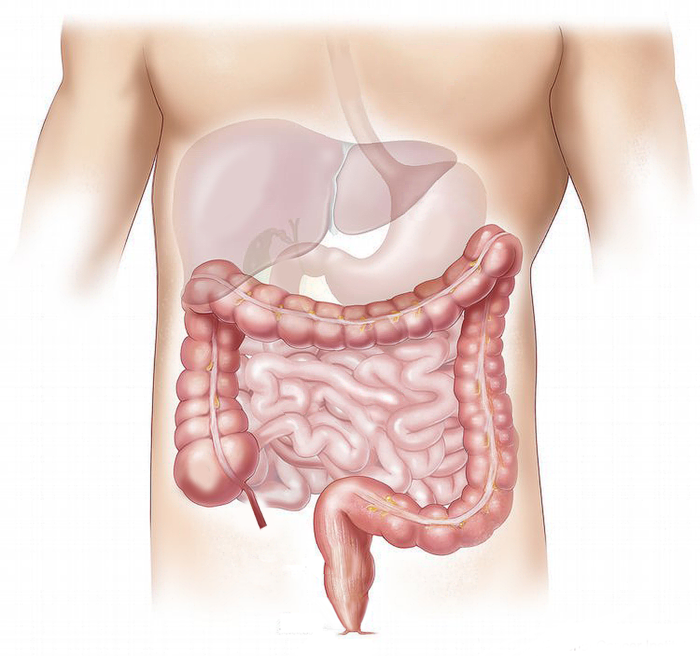Metaplasia is a cellular process that involves the reversible transformation of one mature cell type into another, usually in response to chronic irritation, inflammation, or injury. In the context of the stomach, it refers to a specific type of metaplasia known as gastric metaplasia or intestinal metaplasia. What is gastric metaplasia and is it reversible?

What causes gastric metaplasia?
Gastric metaplasia occurs when the normal glandular cells that line the stomach undergo a change and transform into cells that resemble the cells found in the intestines. This change in cell type is considered abnormal and is associated with chronic inflammation in the stomach, often caused by conditions like chronic gastritis, Helicobacter pylori infection (a bacterial infection that can lead to gastritis), or other irritants.
The transformation of stomach cells to intestinal-like cells is thought to be a protective mechanism by the body. Intestinal cells are better equipped to withstand the acidic environment of the stomach, so the body may replace the damaged stomach cells with intestinal cells to protect the tissue from further damage.
Will gastric metaplasia turn into cancer?
However, while metaplasia may initially be a protective response, it can also be a significant concern. Intestinal metaplasia is associated with an increased risk of developing gastric cancer. Over time, if the underlying cause of the irritation or inflammation is not addressed, the cells can undergo further changes and lead to dysplasia (abnormal growth) and eventually progress to cancer.
A recent nationwide study in the Netherlands examined the impact of intestinal metaplasia (IM) on the development of gastric cancer. Among a group of 61,707 patients with IM, 874 cases developed gastric cancer over a 10-year period, resulting in a cumulative 10-year incidence of 1.8% and an estimated yearly incidence of 0.18%. However, some experts criticized the analysis, as 0.7% of cancer cases were diagnosed within a shorter 10.8-month follow-up. By excluding these early prevalent cases, a more likely estimate indicates a 10-year incidence of 1.1% (with a yearly risk of 0.11%) of gastric cancer in patients with IM.
What to do if you get gastric metaplasia?

Those with gastric metaplasia need to undergo regular follow-ups and screenings to monitor any potential changes and address any underlying conditions that may contribute to the metaplasia.
Treatment for gastric metaplasia involves managing the underlying causes, such as treating H. pylori infection if present, and reducing risk factors that may contribute to chronic inflammation or irritation of the stomach lining.
If you suspect you have any stomach-related issues or concerns about metaplasia, it’s crucial to consult with a healthcare professional who can provide an accurate diagnosis and appropriate management plan based on your individual health situation.
How to prevent developing gastric metaplasia?
Reducing the risk of developing intestinal metaplasia in the stomach involves adopting a combination of lifestyle changes and preventive measures. Here are some strategies to help prevent or reduce the risk of intestinal metaplasia:
Helicobacter pylori (H. pylori) eradication
H. pylori is a bacterium that is associated with chronic gastritis and increases the risk of developing intestinal metaplasia. If you have been diagnosed with an H. pylori infection, undergo appropriate treatment to eradicate the bacteria, as recommended by your healthcare provider.
Healthy diet
Follow a balanced and nutritious diet rich in fruits, vegetables, whole grains, and lean proteins. Avoid excessive consumption of processed foods, high-fat foods, and foods that are spicy or irritating to the stomach lining.
Quit smoking

Smoking can contribute to chronic inflammation in the stomach, increasing the risk of intestinal metaplasia. Quitting smoking can have numerous health benefits, including reducing the risk of stomach-related issues.
Limit alcohol consumption
Excessive alcohol intake can irritate the stomach lining and contribute to gastritis, which may increase the risk of metaplasia. Moderating alcohol consumption or (even better) avoiding alcohol altogether is recommended.
Manage stress
Chronic stress may exacerbate digestive issues. Practicing stress-reduction techniques like meditation, yoga, or regular exercise can help manage stress levels.
Avoid non-steroidal anti-inflammatory drugs (NSAIDs)
Long-term use of NSAIDs can cause irritation and damage to the stomach lining, potentially leading to gastritis and metaplasia. If you need to take NSAIDs for chronic conditions, consult your doctor for appropriate alternatives or protective measures for your stomach.
Regular health check-ups
Regular visits to your healthcare provider for check-ups and screenings can help identify potential health issues early on, allowing for timely intervention and management.
Follow medical advice
If you have any stomach-related symptoms or conditions, such as chronic gastritis or acid reflux, follow your doctor’s advice regarding treatment and lifestyle changes to prevent complications like metaplasia.
Who is more prone to developing intestinal metaplasia?

Individuals who are more prone to developing gastric metaplasia typically have certain risk factors that increase their susceptibility. Here are some factors that may contribute to a higher risk of gastric metaplasia:
Chronic Helicobacter pylori infection: H. pylori is a bacterium that can colonize the stomach lining and lead to chronic gastritis. Prolonged infection with H. pylori is a significant risk factor for gastric metaplasia.
- Chronic gastritis: Inflammation of the stomach lining, often caused by factors like H. pylori infection, long-term use of non-steroidal anti-inflammatory drugs (NSAIDs), or excessive alcohol consumption, can increase the risk of developing gastric metaplasia.
- Age: The risk of gastric metaplasia tends to increase with age, as chronic inflammation and irritation of the stomach lining may accumulate over time.
- Family history: People with a family history of gastric cancer or gastric metaplasia may have a higher risk of developing this condition.
- Smoking: Smoking can contribute to chronic inflammation in the stomach and increase the risk of gastric metaplasia.
- Dietary factors: A diet high in processed foods, high-fat foods, and spicy or irritating foods may contribute to chronic inflammation in the stomach, increasing the risk of metaplasia.
- Alcohol consumption: Excessive alcohol intake can irritate the stomach lining and contribute to gastritis, which may increase the risk of gastric metaplasia.
- Prolonged use of NSAIDs: Long-term use of NSAIDs (Non-Steroidal Anti-Inflammatory Drugs) can cause irritation and damage to the stomach lining, potentially leading to gastritis and metaplasia.
- Previous stomach surgeries: Some types of stomach surgeries may increase the risk of developing gastric metaplasia.
- Geographic location: The prevalence of H. pylori infection and gastric metaplasia can vary in different geographic regions, with some areas having a higher incidence than others.
How to treat gastric metaplasia?

There are certain measures that can be taken to manage and potentially reduce the severity of metaplasia, and most of them are just the same as the steps to preventing the disease:
- Treating underlying causes: If the metaplasia results from an underlying condition, such as chronic Helicobacter pylori infection or chronic gastritis, treating the cause is your number one step. Eradicating H. pylori through appropriate antibiotic therapy and managing gastritis can help prevent further progression of metaplasia.
- Lifestyle modifications: Adopting a healthy lifestyle can support overall gastrointestinal health. This includes following a balanced diet, avoiding spicy or irritating foods, limiting alcohol consumption, quitting smoking, and managing stress.
- Regular follow-ups and screenings: Patients with gastric metaplasia should undergo regular endoscopic evaluations and biopsies to monitor the progression of the condition and detect any signs of dysplasia or cancer at an early stage.
- Medication: In some cases, medications like proton pump inhibitors (PPIs) may be prescribed to reduce stomach acid production and minimize inflammation, which can help manage symptoms associated with metaplasia.
- Antioxidants and anti-inflammatory agents: Some studies suggest that certain antioxidants and anti-inflammatory agents, such as vitamin C, vitamin E, and polyphenols, might have protective effects against gastric metaplasia. However, more research is needed to establish their efficacy definitively.
- Take omega-3: Omega-3 fatty acids have been studied for their potential health benefits, including their effects on inflammation and the gastrointestinal system. While there is some evidence suggesting that omega-3 fatty acids may have anti-inflammatory properties, their direct role in reversing or preventing gastric metaplasia is not well-established.
Some studies have shown that omega-3 fatty acids may help reduce inflammation and promote a healthy gut environment. Inflammation is a key factor in the development of certain gastrointestinal conditions, including chronic gastritis, which can contribute to the development of gastric metaplasia.
- Consulting a specialist: If you have gastric metaplasia, work closely with a gastroenterologist or a healthcare professional experienced in managing gastrointestinal conditions. They can develop a personalized treatment plan based on your specific situation and medical history.
Is gastric metaplasia reversible?

While complete reversion of metaplasia may be challenging, early intervention, appropriate management, and regular monitoring can help control the condition and prevent its progression to more serious complications. Always follow your healthcare provider’s recommendations and attend regular check-ups to ensure proper management and detection of any changes in your gastrointestinal health.
The reversibility of gastric metaplasia, also known as intestinal metaplasia, is a topic of debate among medical professionals. In general, once metaplasia occurs and mature cells in the stomach lining transform into a different cell type resembling intestinal cells, complete reversion to the original cell type is unlikely in most cases.
However, the progression of metaplasia and its associated risks can be managed and potentially reduced with appropriate measures. As we said earlier, treating underlying causes, such as eradicating Helicobacter pylori infection or managing chronic gastritis, can help prevent further progression of metaplasia.
Also, regular monitoring through endoscopic evaluations and biopsies allows your doctor to detect any signs of dysplasia or early-stage cancer, providing an opportunity for intervention before it advances.
While complete reversion of metaplasia may not be achievable, the goal of managing metaplasia is to prevent its progression to more serious conditions, such as dysplasia or cancer. By taking proactive steps and following medical recommendations, individuals with gastric metaplasia can potentially improve their quality of life and reduce the risk of complications.
If you have been diagnosed with gastric metaplasia or have concerns about your health, work closely with your healthcare provider to develop a personalized management plan based on your individual health status and risk factors.










